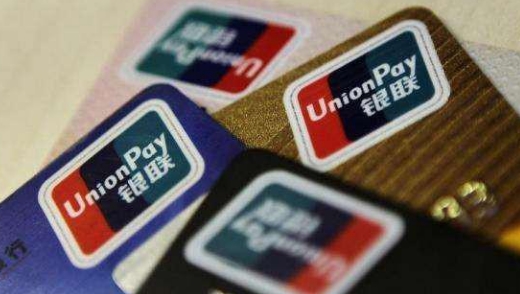CCTV News:From June 1st, UnionPay raised the single limit of small-sum confidential and visa-free payment business from 300 yuan to 1000 yuan, which caused some people’s worries.
Unionpay, a China bank card joint organization approved by the People’s Bank of China, has realized the interconnection of systems among banks, thus enabling bank cards to be used across banks, regions and borders.

Unionpay’s small amount of confidential exemption and visa-free is a small amount of fast payment service provided by China UnionPay for cardholders. When a cardholder uses a financial IC card (including debit card and credit card) with the function of "flash payment" to conduct a transaction with a certain amount (RMB in 1000 yuan, subject to the local limit overseas) at a designated merchant, he only needs to put the card near an acceptance terminal such as a POS machine (the "flash payment" sensing area) and "wave the card" to complete the payment. There is no need to enter a password or sign in the payment process.
Zheng Dongdong, assistant general manager of China UnionPay Agency Cooperation Department, said that in some industries and scenes that require high checkout speed, such as buses and subways, and in some large supermarket chains where there are many queues, such as gas stations, you can avoid getting off the bus to sign bills when filling up, and the transaction speed will be greatly improved.
It is understood that the secret-free visa-free function of UnionPay card is mainly used in some special consumption occasions such as small amount and high frequency.
However, this initiative aimed at bringing convenience to cardholders’ consumption has recently aroused some doubts in the society in terms of consumers’ right to know and credit card limit.
Experts in the industry also said that there are still some risks in UnionPay micropayments.
It is understood that all credit IC cards and debit IC cards that support the "flash payment" function on the market at present support the UnionPay small secret-free visa-free service. Experts said that it is also a common practice in the world to avoid confidentiality and visa for bank card micropayments. But you don’t need to enter a password or sign, so how can you ensure the security of the payment method?
Dong Ximiao, a senior researcher at Chongyang Financial Research Institute of Renmin University of China, said that three lines of defense have been adopted in the risk prevention and control of small-amount confidential exemption. First, the bank cards of small-amount confidential exemption are all chip cards, which are safer and more reliable than the traditional magnetic stripe cards. The second line of defense means that only those merchants with standardized operation and high security can be regarded as special merchants of small-amount confidential exemption. The third line of defense is to pay compensation even after stealing.
According to the current regulations of China UnionPay, the single payment limit of small-sum confidential exemption and visa-free is 1000 yuan, and only three payments can be made in one day at most. In case of stolen brush, the maximum compensation amount can reach 30 thousand yuan within 72 hours.
In other words, if the UnionPay card is lost and stolen, it may only be stolen for 9000 yuan within three days and 72 hours, then the compensation of UnionPay can completely cover the loss of the cardholder.
An Shumin, Senior Manager of Debit Card Team of Personal Finance Department of Bank of China Head Office, said that the card issuer can also apply for financial compensation for the loss caused by the use of small-amount confidential and visa-free fast payment service, and the card issuer will conduct a research and collect evidence, and submit the application for compensation to UnionPay. After verification by UnionPay, the compensation funds will generally be returned to the cardholder’s designated account within one or two working days.
Experts said that UnionPay and banks should fully inform cardholders when opening services, rather than simply notifying them at will. We should respect the wishes of cardholders, so that consumers can enjoy convenience and get safer services.